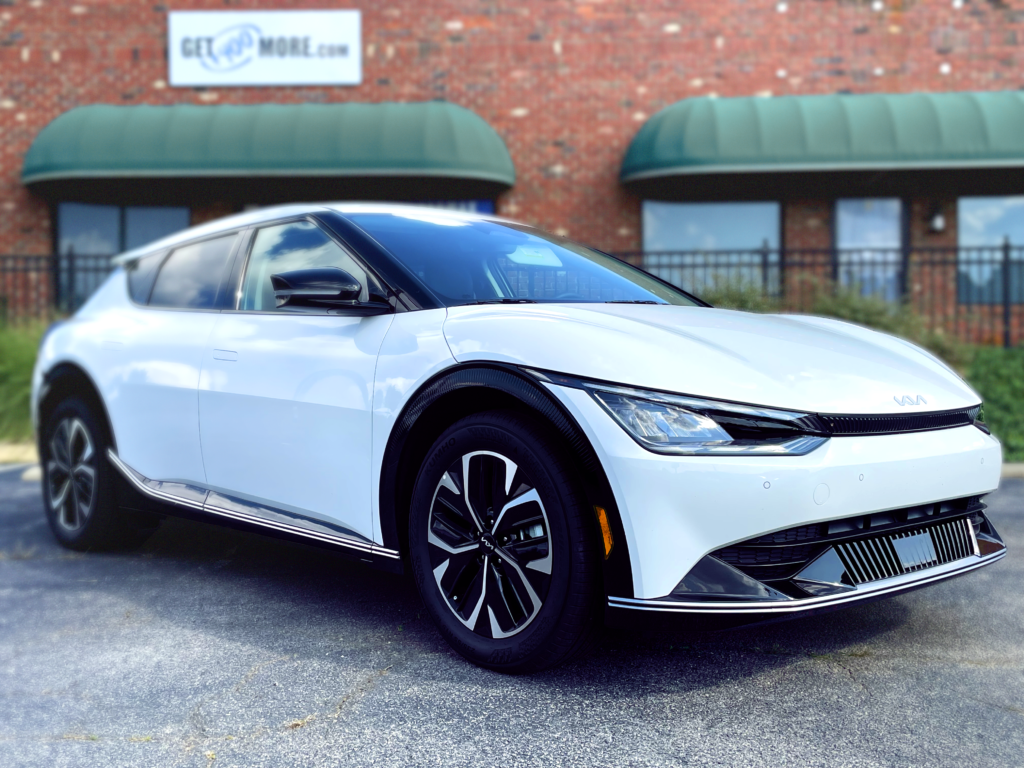If you do any driving, you’ve seen an increasing number of electric cars on the road, even if you don’t recognize them. All-electric vehicle registrations shot up 60% in the first part of this year – a record high of 17.7% of all vehicles on the road.
Why are Americans choosing electric vehicles?
The answers are complex. Financial incentives, lifestyle shifts due to COVID-19, new legislation, and the increased availability of electric cars may all contribute to an individual’s decision to make the switch.
So, is an EV right for you?
In this two-part series, we’ll examine the finer points of electric car ownership to help you make an informed decision.
In part one, we’ll go over the types of electric vehicle, and examine the financial considerations of owning an EV. In part two, we’ll focus on the reality of owning an electric vehicle, including durability, travel distances, and weather concerns.
Let’s dive into part one!
There are More EV models on the market than ever before.
Almost every manufacturer offers a fully electric or hybrid option. In the past, drivers with an established preference for a certain make would’ve had to abandon their preferred type of car in pursuit of an energy-conscious vehicle, but today, every major manufacturer offers an electric vehicle. And not just the tiny sedan or hatchback that might come to mind when picturing an EV – electric trucks, vans, and even SUVs are available in 2022.
What are the types of electric vehicles? What are the differences between HEV, PHEV, and BEV?
Not all electric vehicles offer the same benefits (or drawbacks) compared to one another.
There are three major categories of electric vehicle: HEV, PHEV, and BEV.
- BEV (Battery Electric Vehicles) or All-Electric Vehicles
- As the name implies, BEVs operate solely on battery power and contain no gas engine components. They require the use of external charging equipment to operate and have ordinary driving ranges from 100 to 520 miles [1] depending on the make, model, and type of travel – city driving (with its frequent braking, and thus, recharging of the battery) will get more out of your range than highway driving, for instance.
- PHEV (Plug-in Hybrid Electric Vehicle)
- PHEV vehicles have traits of both BEVs and Hybrids. Like a hybrid, their gas-powered combustion engine operates with assistance from an electric motor; like an all-electric vehicle, PHEVs may swap to all-electric mode and travel between 20 – 40 miles on electricity alone. [2] A PHEV battery must be charged with external charging equipment in order to operate in all-electric mode.
- HEV (Hybrid Electric Vehicle)
- Hybrids, the most common type of electric vehicle, operate primarily on gasoline, but use an electric motor to assist the gas engine. [3] They’re characterized by low emissions and good gas mileage compared to non-hybrid gas powered vehicles.
Will an electric car save me money?
Ultimately, EVs will certainly save you money in the long run. How much money, and how quickly you can overcome the investment cost, depends on a few different factors.
Are electric vehicles cheaper than gas cars?
Retail prices for electric vehicles tend to mirror their gas-powered counterparts. The MSRP of most EVs runs in the $20,000 to $65,000 range, with the upper end falling between $70,000 and $200,000.

Buying used (or re-selling) presents more of a challenge. EVs typically offer lower resale values, as older models with limited range can’t keep up with the competition. And because of the low resale value, EV owners are unlikely to list their cars for sale, meaning they’re difficult (though not impossible) to find secondhand.
Will I save money on gas with an electric vehicle?
As you might expect, EV drivers do benefit from skipping pricy trips to the pump. Consumer Reports found that EV drivers enjoy an average savings of 60% per year compared to gas-powered drivers.
It’s not just as straightforward as avoiding gas prices, however – that same report shows that the biggest factor to fuel costs, gas or electric, is where you live.
If you plan to charge up at home, your electric bill is the main factor in calculating your gas savings. NRDC.org offers this on calculating your electric bill with a new electric car:
To get a rough estimate of your own charging costs, multiply an EV’s kilowatt-hour (kWh/100) miles rate by your electricity rate (measured in cents per kWh), which you can find on your monthly bill. This will give you the electricity costs per 100 miles driven. After figuring in the number of miles you typically drive in a month, you’ll be able to see how much your electric bill may go up. Keep in mind that charging your car overnight, when electricity demand and price drop, can save you 30 percent on that charge.
“Electric vs. Gas Cars: Is It Cheaper to Drive an EV?” – Courtney Lindwall for NRDC.org
The Federal Tax Credit for Electric Vehicles
How do I know if I qualify for the electric vehicle tax credit?
If you’re interested in EVs, you may have heard about new tax credits that could defray the cost of your electric vehicle. As the Inflation Reduction Act slowly took shape earlier this year, many proponents hoped the EV tax would simplify into a flat rate applied to most or all EVs.
Unfortunately, like all things tax-related, nothing is ever that simple.
How much is the electric vehicle tax credit?
The short answer? The maximum tax credit is $7,500.
The long answer? “It depends.”
While the maximum is $7,500, how much of the credit you receive depends on a laundry list of factors:
- How much is “American Made” (notably, Tesla and GM do not qualify as American made.)
- MSRP of the model in question
- Your adjusted gross income ($150,000 or less for individuals, or twice that for joint filers)
- The type of electric vehicle (BEV, PHEV, or zero-emission van, truck, or SUV)
- The date you purchased, or plan to purchase
The terms are very opaque. It’s best to check any model you’re interested in purchasing against the US Department of Energy’s list of eligible vehicles if you’re hoping to qualify for the tax credit.
How does the tax credit apply?
The tax credit allows taxpayers to reduce their federal taxes down to zero – but does not roll over to the next fiscal year, nor apply a refund.
In other words, if you don’t owe $7,500 or more in federal taxes, you can’t benefit from the full amount of the credit.
While some states offer state-level tax credits for EVs, North Carolina is not currently one of them.
If you are leasing a vehicle, the tax credit will go to the manufacturer that is leasing the vehicle to you. At times, the manufacturer will give a slight discount or credit to the person leasing the vehicle to help offset the tax credit that the individual cannot claim. You must own the vehicle in order to qualify for the tax credit on your electric vehicle.
How much does it cost to maintain an electric vehicle?
Repairs and operating life are an important consideration when researching a new vehicle.
Maintenance costs for EVs are, on average, lower than that of gas vehicles. According to research by AAA, electric vehicles cost $330 less per year than gas vehicles.
It makes sense, considering the main culprit of traditional car maintenance – the combustion engine – is absent in all-electric vehicles. Your BEV will not require motor oil or engine air filters.
This doesn’t mean that EV parts can’t be costly, however – especially in the second-hand market.
Specialty parts, including battery replacements on BEVs, can end up costing more than the price of the vehicle – as in the case of a young woman from Florida whose electric battery died in her used Ford Focus.
Does an Electric Vehicle make money sense for you?
Like any major purchase, investing in an electric vehicle is an involved decision. Considering your lifestyle, current and future finances, and willingness to adapt to change are all important factors in the switch to electric cars.
Stay tuned for part two from Get400More.com.
In part one, we covered the many financial considerations that come with adopting EVs. In part two, we’ll focus on the lifestyle aspect of owning an EV – travel, durability, and specialty equipment.
If you’re thinking of making the switch to an electric vehicle and need to sell your current car, getting the best deal possible is crucial.
Call 1-844-400-MORE to get the best offer on your used car, guaranteed.








